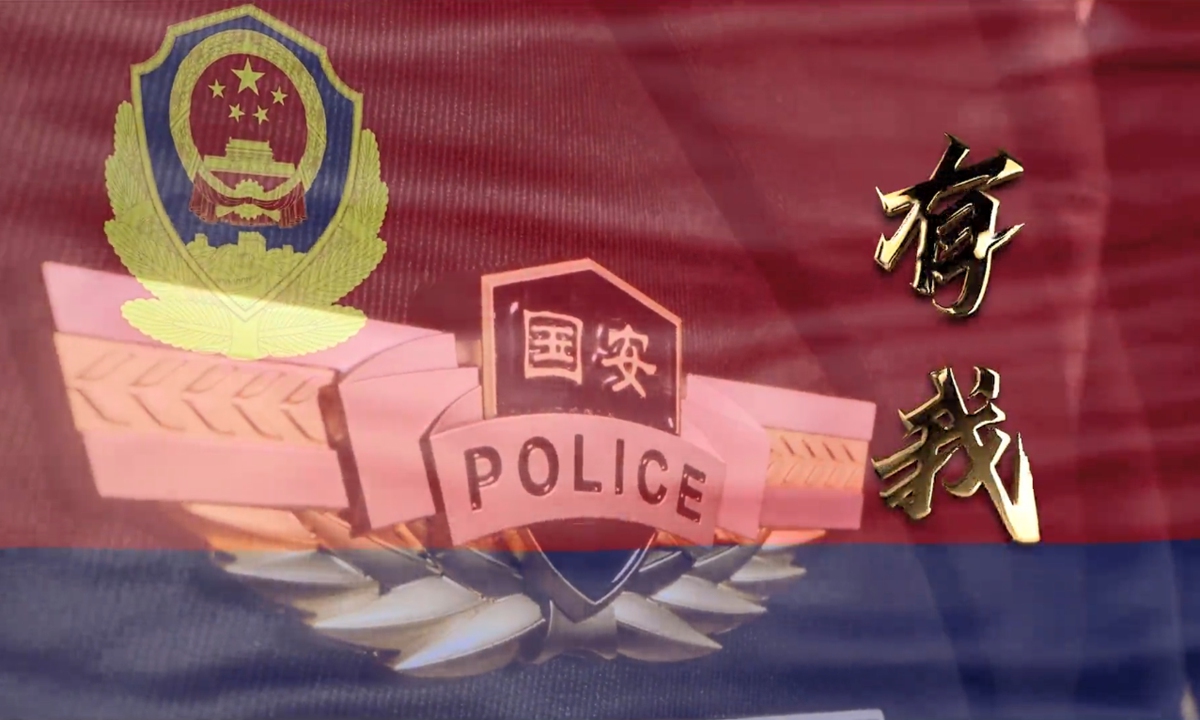China's state security authorities disclose 10 espionage cases uncovered by the public on education day

Chinese Ministry of State Security
China's Ministry of State Security (MSS) disclosed 10 spy cases reported by members of the public on Monday, also the ninth National Security Education Day, via a film documentary to show the efforts that national security officers and the people have worked together to defend national security since the overall national security outlook was proposed a decade ago.
The ministry encouraged citizens to remain vigilant and report any suspicious activities that may pose a threat to national security. The public should prioritize national security and report any suspicious behavior without fear and their actions should be commended and widely praised, the MSS said.
A total of 86 individuals have been awarded by the country's national security agencies this spring. Among them, 15 individuals received awards for significant contributions, while 71 individuals received awards for important contributions, the ministry said. One of them discovered significant foreign espionage activities targeting the country's military infrastructures, while others reported important clues related to violence and terrorism or reported major security potential risks.
In a case, in October 2021, Chen met his long-lost fellow villager Zhao at a friend's gathering. Afterwards, Zhao continually invited Chen to high-end venues and asked Chen to provide his bank account details to receive Zhao's overseas remittance, promising Chen a generous reward.
Later Chen realized that Zhao was selling classified documents overseas, posing a threat to national security. Chen decided to persuade Zhao to turn himself in. However, Zhao not only refused to listen but also tried to bribe Chen with more money. When it didn't work, Zhao threatened Chen and his family. Chen later reported Zhao's illegal actions to the national security agencies, and received protection in accordance with the Counter-Espionage Law.
National security agencies successfully cracked a major spy case based on the information provided by Chen, leading to the arrest of Zhao. Chen was awarded the honor title and was granted a reward of 100,000 yuan ($13,815.2).
Military security is not only an important area of national security, but also an important guarantee for other aspects of national security. With the continuous improvement of the country's military strength, the espionage activities of foreign intelligence agencies are also intensifying, seriously threatening the country's military security, the ministry said.
In another case, in 2019, a speedboat driver surnamed Ma in South China's Guangdong Province reported a tourist surnamed Ran to a national security agency for suspicious behavior near a military port. Ran was found taking photos and making sketches of Chinese warships. After investigation, it was found that Ran was a naive young man lured to work for a foreign intelligence agency. He confessed to espionage activities and was sentenced to five years in prison, with his illegal gains confiscated.
During recent years, spy activities that pose a threat to national security have been found across different parts of society.
In July 2016, Chinese citizen Yang reported to the local national security agency that a foreign tourist, Ai, was acting suspiciously and illegally collecting insect samples in a certain nature reserve in the country. It was found that Ai's actions of illegally collecting insects in China and taking live insects out of the country, violated Chinese laws and international conventions.
In 2020, citizen Tian reported to the local national security agency that a foreign technology company, in collaboration with expert Sun, established a joint venture in China using core technology without legal supervision. The company was setting up advanced laboratories for crop design and breeding, collecting data, and acquiring seed companies in key grain-producing areas.
After investigation, the multinational company, known for seed patent technology, aimed to obtain more patents in the Chinese grain field and resources through collaborations with domestic institutions and companies. Industry experts warned that these actions posed a serious threat to China's food security and national seed industry.
Relevant departments then talked with Sun regarding his legal responsibilities for domestic scientific research projects. Illegal outflow of a single seed abroad is strictly prohibited due to its impact on national food security.
Global Times


